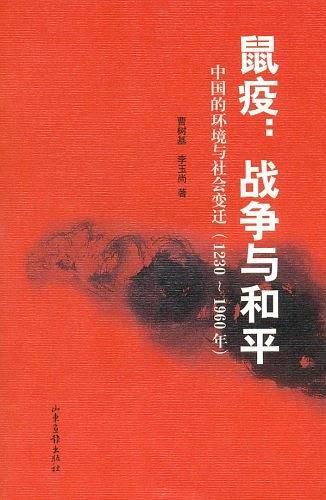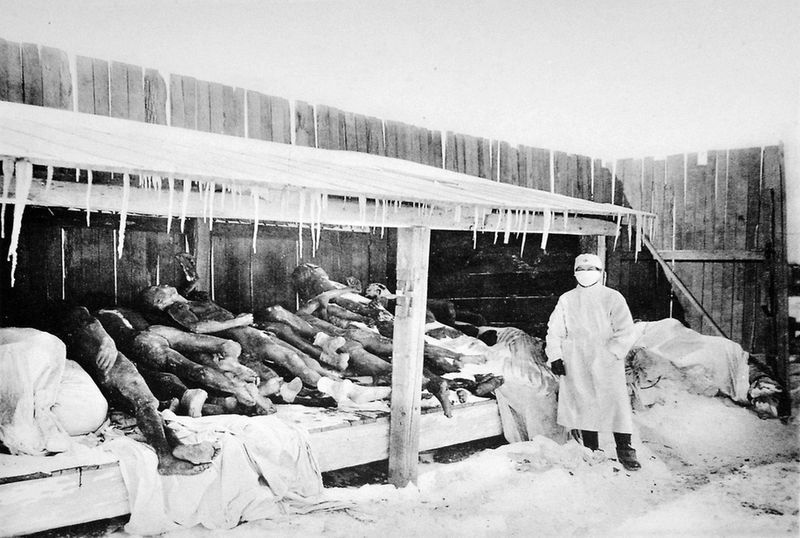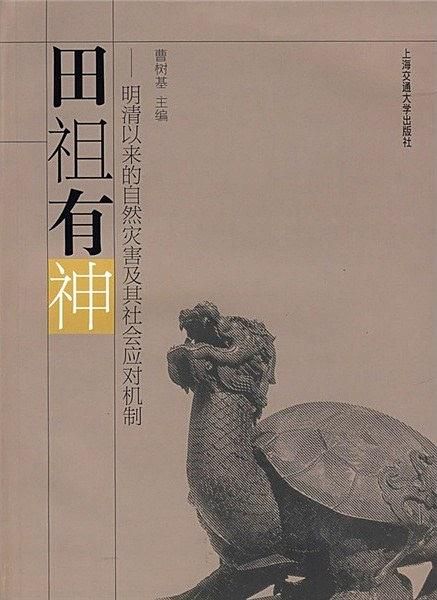Plague and Epidemic Prevention: The Fake of History and the Fake of Reality Magical Alternation | Interview with Cao Shuji (Archive)
On February 19, 2020, the Beijing News published this article after deleting some content.
On February 26, Quzhou Daily published an article refuting Cao Shuji, calling it a "horror" remark . Afterwards, there was a crusade on Weibo, such as @idetorch (the certification information is "National Cultural Security and Ideology Construction Research Center of the Chinese Academy of Social Sciences") questioned, "How could such an article with no history be published in newspapers? "
However, the article on the WeChat public account "Old Ningbo" is very interesting. After criticizing Cao Shuji, he finally changed his mind: "The Beijing News can provide a platform for such a statement that is completely different from the accepted historical conclusion, and it can make Professor Cao said it happily, it is rare, and it is also worthy of praise. The society's tolerance for differences and even opposition is one of the necessary conditions for historical research to reveal the truth of history. Imagine if Japanese society could not tolerate the survival and research of anti-war scholars , then the field of the history of the Anti-Japanese War in China is very likely to indulge in the accusations of the victims and the memories of the witnesses and not be able to enter the stage of academic research. The historical truth that has been revealed is not afraid of opposing views, otherwise it must be the truth.” "Insufficient quality, or lack of confidence in the researchers who reveal the truth and their research results. Therefore, I think The Beijing News has done a good job this time, and Professor Cao's courage is commendable. I hope you will continue."
As a result, it cannot continue.
On February 28, a certain media wanted to interview Professor Cao Shuji on the issue of medical supplies. I contacted him for help, but Mr. Cao told me, "I'm not allowed to be interviewed, and I've been criticized, sorry." On March 3, I learned that someone first reported this article to the Beijing News, but the newspaper ignored it. As a result, the person continued to report it to the top, and it was deleted by the entire network within the wall.
The following are articles previously issued by the Beijing News, which are hereby archived.
Plague and Epidemic Prevention: The Fake of History and the Fake of Reality Alternate Magically | Interview with Cao Shuji
Written | Special correspondent of the Beijing News, Zeng Menglong
As a historian, in the face of the current epidemic, 64-year-old Cao Shuji said with emotion: "Everything we do in the epidemic prevention work today follows the basic principles of epidemiology. Quickly identify the source of the epidemic, cut off the transmission route, and treat the critically ill people. This is what we should do! Disrupting the entire epidemic prevention process with lies and destroying all these three points is our price today."
Unlike many people, the changes in the new crown pneumonia epidemic have not affected Cao Shuji's mentality. During this time, he completed two papers on the history of plague, and is currently writing the third one, which is full and magical: "If the epidemic period is prolonged, I may finish this manuscript during the epidemic period. This is called 'writing during the epidemic period'. Epidemic history'. Of course, the comparison between history and reality is very magical." Cao Shuji said.
Cao Shuji is now a professor and head of the Department of History at Shanghai Jiaotong University. His research interests include immigration history and population history, disease history, socioeconomic history and contemporary Chinese history. He is the author of Plague: War and Peace, Traditional Chinese Land Rights Structure and Its History "Evolution", etc., edited "Tian Zu You Shen: Natural Disasters and Their Social Coping Mechanisms Since the Ming and Qing Dynasties", "Shicang Contract" and so on.
He was born in Poyang, Jiangxi Province in 1956, and has seminal works in various research fields. Among them, "The Plague" is the first detailed discussion of the plague epidemic in China by mainland Chinese scholars. He and his collaborator Li Yushang discussed the history of plague epidemic in China from the perspectives of plague history methodology, plague epidemic patterns (war and peacetime), environmental changes and national medicine. Moreover, they not only made new explanations for the relationship between the plague epidemic and environmental changes in China, but also proposed new explanation models for the evolution of Chinese social history over the past 700 years.
Cao Shuji believes that, in a sense, we can regard the nature of social changes in modern China as ecological changes, and we can regard the nature of ecological changes over the past century as social changes. The process of globalization that has occurred since modern times and is still in progress today is a process in which ecological changes and social changes are mutually causal.
In recent years, due to the emergence of many new materials, he has carried out research on the plague war of the Japanese invaders in China. This is also what he mainly does during the epidemic period, "turning, copying, thinking, and writing every day."
The following is an excerpt from the interview between The Beijing News and Cao Shuji.

Today's academia is shrouded in strong nationalism
Beijing News: During the epidemic, how did you spend every day?
Cao Shuji: The main thing is writing. During the epidemic, that is, the winter vacation, I wrote 2 papers on the history of plague, the theme was the plague war of the Japanese invaders in China in the 1940s, and now I am writing the third. From last year to now, I have completed a total of 4 papers on the Japanese army's plague war. In my opinion, the plague war of the Japanese invaders was constructed, not historical reality. If the epidemic period is prolonged, I may finish this manuscript during the epidemic period. This is called "writing the history of the epidemic during the epidemic".
Beijing News: Can you talk about your thoughts and ideas for the entire manuscript?
Cao Shuji: In 2012, I wrote an article for "Research on Modern History", titled "The Epidemic After the War: A Study of the Plague in Western Yunnan from 1944 to 1947". Some people used to think that the plague epidemic in Tengchong, Yunnan in 1944 was caused by the spread of Yersinia pestis by the Japanese invaders. My research shows that the plague epidemic in Tengchong in 1944 had nothing to do with the Japanese. The two armies faced each other, and the Japanese army used plague warfare. How could they control the direction of the mice? If the mouse climbed up the mountain, didn't it climb into the Japanese position?
Of course, rigorous academic proof is not so simple. The complete epidemiological investigation of that year was kept in the Yunnan Provincial Archives. From the natural foci of plague, the epidemic direction of plague, and the spatial distribution characteristics of plague, I prove that this epidemic has nothing to do with the Japanese army. In my opinion, it is wrong that today's academia is shrouded in a strong nationalist trend. We should do our research well and realistically.
Since last year, I have paid attention to the plague wars of the Japanese invaders in Quzhou, Jinhua, Ningbo, Zhejiang, and Changde, Hunan. In recent years, most of the materials in this field have been compiled and published in English, Japanese, and Chinese. The conditions for research are ripe. I opened the data and read it a little, and found that the previous research method was wrong.
For example, from the facts themselves, how can you prove that the Japanese army spread bacteria in Quzhou? Did someone say during the Republic of China that we should believe and accept it? This legend not only has loopholes in historical facts, but also fails in academics. How is Yersinia pestis preserved? How to survive in the floating and after landing? How to infect people after surviving? At present, it is known that the bite of rat fleas is the main transmission route of plague, and the transmission of rat→flea→human is the main transmission mode of bubonic plague. The main mode of transmission of pneumonic plague is the formation of "person-to-person" transmission by droplets. How can bacteria spread on planes, even if they survive, get into these two systems? It is an exaggeration to say that even if the plague bacilli from the plane landed on me, as long as it did not fall on the wound on my body, I would not contract the plague.
The same is true of Changde. At that time, a doctor in Changde said that the plague bacillus was detected from the grains and wheat scattered by the Japanese aircraft. This statement was denied by other doctors at the scene and authoritative scholars who arrived at the scene later. The problem is that our scholars will only come up with materials that are favorable to them to prove the guilt of the Japanese army, so that the matter becomes a conclusion. Overturning conclusions is my current job.
In recent years, information from Japan has come out. The information of two Japanese soldiers is very important, one was a military doctor of Unit 731, and the other was a front-line combat staff. The military doctor left a collection of essays, and the combat staff a combat diary. The work I have done recently during the epidemic is to criticize these two Japanese documents. I'm glad I found their loophole. There is clear evidence of the exaggeration and falsification of the Japanese material.
For example, in the past few days, people often talk about "R0", which is the epidemic coefficient, which means that without any precautions, among people who have not had the new crown pneumonia virus, one person can spread to several people on average. The Japanese military doctor at that time used this concept, not R0, but Cep. During the plague epidemic in Nong'an and Dalai County in 1940, the military doctor said that the R0 of Nong'an was 77, while the R0 of the neighboring Dalai County was as high as 203, and there was no data to prove it. Isn't this bullshit?
There was also the Japanese combat staff officer, who took the news he heard as truth and wrote it down in his combat diary afterwards. In Ningbo, the combat staff had been transferred back to Tokyo when the events in the news occurred. There was no other way, he only had to advance the time when the Japanese planes spread bacteria or fleas to two days before he left China. This is how history is produced by them.
History is so interesting, with constant challenges and constant discoveries. This epidemic period, I mainly do this research. Of course, this research also makes me nervous. The reason why I will be interviewed by you and talk about the thesis I just finished is because I think that at any time, seeking truth from facts, not telling lies, and rigorous scholarship are more important than anything else. Even though China's germ warfare lawsuit was won in Japan more than a decade ago, all the evidence seems overwhelming to me. Today we adopt the correct method to restore the original appearance of history, which will not harm the interests of the Chinese people. This is my idea.
Beijing News: Regarding the plague war, you said that in fact there are many loopholes, which were constructed. Can you tell us more about how it was constructed? Why construct this discourse?
Cao Shuji: To put it simply, during the war, there were two reports on the epidemic in Zhejiang and Changde: one was Report A, and the other Report B was more rigorous and authoritative. The identities of the authors were different, and the evidence was different. Say A wrong. However, today everyone outside uses the A report instead of the B report. Both wartime nationalism and postwar nationalism contributed to this result. Uncovering the truth of this matter is quite painful for the Chinese people. But now this thing has to be done, it is impossible to stop, and it is impossible to turn back.

The magical alternation of the falsehood of history and the falsehood of reality
Beijing News: Looking back, do you think your mentality has changed during this period?
Cao Shuji: It doesn't matter. My efficiency is still very high, about an average of 10 days to write a first draft of a paper. Of course, the comparison between history and reality is very magical. There are people who cheat in every era. During the period of the Republic of China, ordinary people would cheat, health and epidemic prevention personnel would cheat, government departments would cheat, Japanese military doctors would cheat, and combat staff would cheat. Today's CDC professionals and relevant departments are also blatantly cheating. The alternation of the falsehood of history and the falsehood of reality is really magical.
Beijing News: You mentioned just now that the whole process is actually a superposition of several layers of magic. Can you tell us more about how to understand this magic?
Cao Shuji: Let’s look at the paper for specific examples. The superposition of magic is the result of the transformation of objective facts based on different subjective purposes. The objective facts are transformed and the logic is distorted, forming the so-called absurdity and magic.
Beijing News: Did you read any books during this time? Or watch a movie?
Cao Shuji: I haven’t watched the movie, but I read several information books every day. There are tens of thousands of words about the Japanese army’s bacteriological warfare in China.
Beijing News: You have written very good books such as Plague: War and Peace. From a historical perspective, do you think there are any lessons or inspirations worth discussing about this epidemic?
Cao Shuji: Everything we do today in epidemic prevention work follows the basic principles of epidemiology. Three elements of epidemiology: source of infection, route of transmission, and susceptible population. You see, since the outbreak of the new crown pneumonia epidemic, this month has been completely operated according to these three principles. This is the basic principle of epidemiology, and it is also a very familiar historical picture and a realistic scene. Quickly find out the source of the epidemic, cut off the transmission route, and treat the critically ill. That's what we should do! Disrupting the entire epidemic prevention process with lies and destroying all these three points is the price we pay today.

Professionals need to speak up when they are most at risk
Beijing News: Regarding the emergence and response of the epidemic, what other issues need to be discussed or reflected on?
Cao Shuji: I advocate a research method that counts every data, and I am very good at this myself. We all know in our hearts how many people's death scale can be estimated, because many parameters have already flowed out. The Internet is very good now. Some time ago, there were some very good articles about the power of social assistance. For example, the Hanhong Foundation and the alumni associations of various schools in Wuhan are all a very healthy social mechanism and state. We are happy to discuss these matters. arrive. As long as the information is made public, the temporary chaos will be dealt with, everything should be transparent, and the people of the whole country will overcome the difficulties together. I think there should be no big problem, don't worry too much, don't think too much about how the government is doing.
When I saw the initial confusion, I hated nucleic acid testing. A hospital will send you 10 test strips in one day, and 100 later. The most hated thing in Hubei is the loss of ethics of professionals. CDCs and hospital directors at all levels interview and admonish doctors who tell the truth... No matter what, professionals should be at the most dangerous time. voice. That's their work ethic, that's their work ethic. The CDC and hospital directors should have stood with them.
Beijing News: What do you want to say to ordinary people about the epidemic?
Cao Shuji: At this time, you might as well follow the explanations of experts to enter a slightly more professional level to enrich yourself. So much time, knowledge is poured in like bombardment every day, why not sink your heart and study patiently and meticulously? For ordinary people, I think it makes sense to take it as a process of absorbing knowledge.
Beijing News: Can you recommend some related books or movies and TV dramas to readers to help them think about and understand the epidemic?
Cao Shuji: I don't have any books to recommend. I recommend them to read my books.
Special correspondent丨Zeng Menglong
Editor丨Zhang Ting
Proofreading丨Wei Zhuo
Like my work? Don't forget to support and clap, let me know that you are with me on the road of creation. Keep this enthusiasm together!
